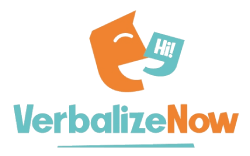Read it and weep: actually, read it and learn! The third entry in our VARK learning styles blog series is all about the read/write learner. These learners differ from their visual and aural counterparts in one important way: they prefer to use the written word as their vehicle for information. If it comes in sentence form or in a list, read/write learners are all about it.
As the author of Verbalize Now’s English blog, I try to keep my personal opinion out of our articles. However, I’m making an exception today because I myself am a read/write learner! Reading, but especially writing, are the best ways for me to remember something important.
What do Read/Write Learners Love?
Read/write learners love words; this goes without saying. These learners love discovering new words to aid in their self-expression or challenging the words they see to discover their true meaning. If you were a kid that openly questioned the exact wording of a school rule to see if you could get away with breaking it, you’re probably a read/write learner. You could also be this type of learner if you took fantastic notes or wrote important things on your hand.
Other objects of fancy for read/write types include:
- Bullet-pointed lists, like the one you’re reading now
- Writing things down verbatim
- Deep affection for dictionaries and thesauruses
- The ability to comprehend complex documents, rules, and definitions
- Text-heavy books and manuals
These learners are also more likely to be eagle-eyed when it comes to spotting mistakes. The “grammar nazi” on your Facebook feed may very well be a read/write learner! Other professions suited for read/write learners include writers (obviously), journalists, lawyers, teachers, editors, and translators.
Strategies for Read/Write Learners
Ordering important information into clear, easy-to-understand lists is the best retention strategy for a read/write learner. One way that read/write learners cope with the graphs and images so beloved by visual learners is by organizing them into statements. One example of this is taking a line graph and explaining the trend it shows in the form of a sentence.
Sometimes, the actual act of writing serves as a memory aid; believe it or not, “muscle memory” is a real phenomenon that can help you learn! Read/write learners don’t need to be told to write important stuff down, maybe even repeatedly!
How Read/Write Learners Can Master Business English
If you’re a read/write learner studying business English, you’re probably already vocabulary obsessed! Read/write learners crave the ability to express themselves, and additional vocabulary improves this ability. Since read/write learners are so good at taking notes, keeping a vocabulary journal is a great idea. Another way to remember new words is by writing them repeatedly, or defining them in your own words. Finally, when it comes to memory, it’s helpful for read/write learners to use mnemonics that utilize rhyming words and acronyms.
You read it here first: Verbalize Now is the online business English school that caters to your specific learning style and ability. Why not take your first step toward a new career at an English-speaking company by contacting us today?










